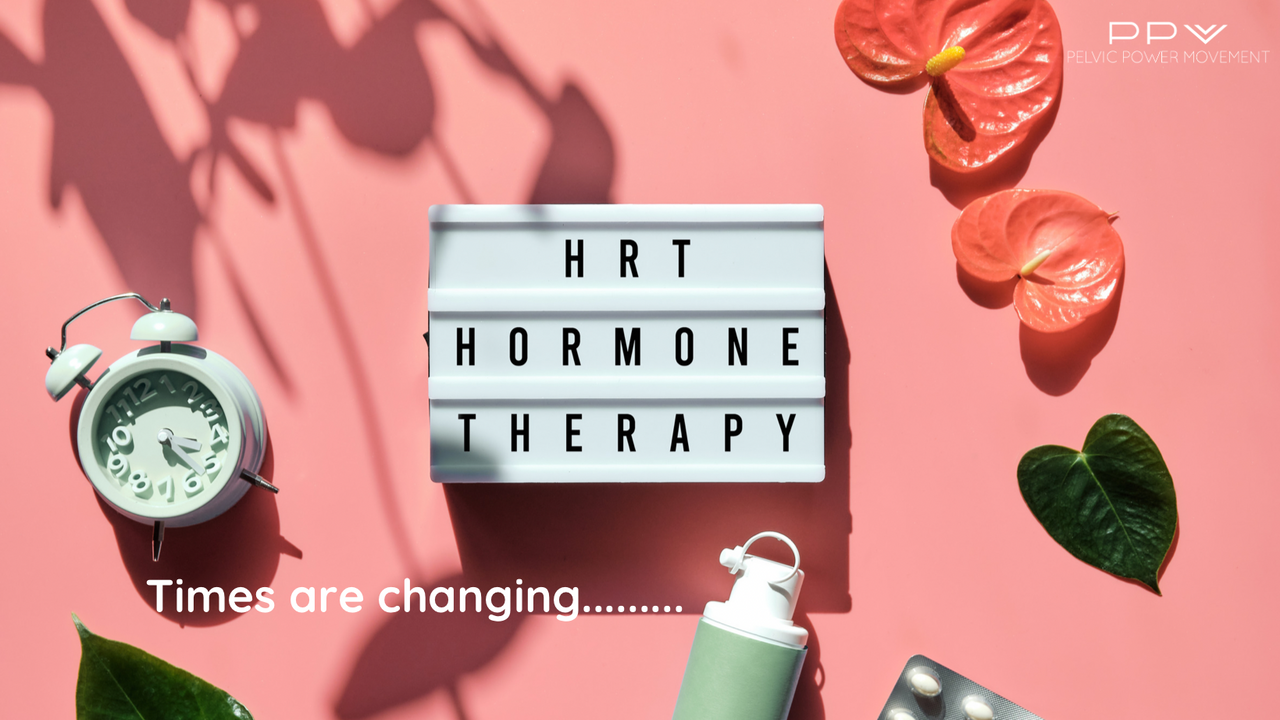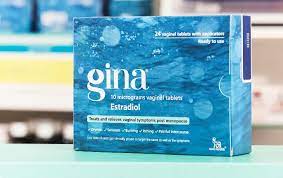HRT, now available over the counter

Times Are Changing…Finally!
September is here, and thanks to some amazing women; significant changes have come into place improving the lives of thousands of women currently suffering with menopause symptoms. If you don’t know what these changes are, then keep reading… you could be one of these lucky women to benefit!
From September, women in the UK (over 50 and who have been period-free for more than a year) can access Gina 10 Microgram vaginal tablets without requiring a prescription. For the first time, menopausal women will be able to access a low-dose HRT product from their local pharmacist, giving them more options and relieving pressure on frontline GP services. "Gina" has been available via the NHS for 30 years but has never been so easily accessible. This particular medicine has proven benefits for many menopause symptoms. Gina is a local oestrogen therapy that is gradually released directly into the vaginal tissue. This helps to restore the integrity of the vaginal wall, relieving vaginal symptoms of dryness, soreness, itching, burning and painful intercourse.particularly vaginal dryness and libido, and is the first medicine to be given the green light to go onto the shelves. It is a huge step forward and life-changing for many women. Other HRT medicines (including Vagifem 10 microgram vaginal tablets) will still only be available on prescription from GPs, but hopefully, the future of HRT will see others following closely behind. Times are changing, so watch this space…

How Does HRT Work?
HRT (hormone replacement therapy) replaces the hormones that start to reduce as you approach menopause. Its main objective is to reduce the symptoms that many women experience at this stage in their life, and it can be very effective. Most of the symptoms experienced can pass after a few years, but it can be extremely unpleasant at the time, and HRT can be sanity-saving on so many levels.
Gina is a low dose localised therapy, affecting the vaginal tissue. Many women experience vaginal dryness at some point during their lives, and there are also many possible reasons. Vaginal dryness can be caused by a hormone level change, which impacts how much vaginal fluid you may have. Although various things can cause this, including lifestyle factors such as medication or breastfeeding, menopause is one of the main reasons. Fortunately, for thousands of women, HRT can make a huge difference to this.
Other forms of HRT can also be helpful in reducing other symptoms of menopause such as:
Night Sweats - although sweating during the night is normal for many people (male and female, as well as children), it stops being normal when your night clothes and bedding are soaked through. This is when it is time to speak with your GP and gets things checked out. Night sweats can be a sign of several things, but menopause is a common one.
Reduced Sex Drive - a low libido can result from lower hormone levels as you get older, particularly during menopause. HRT can be highly effective in bringing those hormone levels back up, and those ‘urges’ back to the level they should be.
Mood Swings, brain fog, tender breasts, joint pains and hot flushes are other menopause symptoms that HRT can help with.
But Why Now?
The move to make HRT available over the counter is part of a boost to improve women’s health across the country, particularly those experiencing menopause and whose lives would be enhanced by easier access to the necessary HRT medication.
The pills will go on sale after the Medicines and Healthcare products Regulatory Agency ruled it is safe for pharmacists to decide who can take them. The idea is for women to be able to chat with a pharmacist instead of having a GP appointment – something which increasingly more people are struggling to get either due to family or work commitment or purely lack of appointment availability. The pharmacist can then decide if the treatment is right for them.
Gina, the medication given the go-ahead for the change, is a low-dose drug containing ten micrograms of the female sex hormone estradiol. This hormone is used to treat vaginal atrophy, which occurs when the vaginal wall becomes thinner, drier and less elastic, a common side effect of menopause. Gina is a local oestrogen therapy that is gradually released directly into the vaginal tissue, helping restore the integrity of the vaginal wall and relieving vaginal symptoms of dryness, soreness, itching, burning and painful intercourse, all connected with vaginal atrophy. The medication aims to improve everyday discomfort and support women to have comfortable sex again…a pleasure that every one of us should be able to enjoy.
In July, the MHRA (Medicines and Healthcare products Regulatory Agency) announced the news after public consultations started just five months earlier. It was the first time an application had been made for an HRT product in the UK to be reclassified as a pharmacy medicine; fortunately, 88% of those asked were in favour. Following the consultation, the MHRA stated that ‘pharmacists are trained healthcare professionals. If the product is reclassified, pharmacists will have access to training materials and a checklist to identify women who can be supplied with this medicine safely.’ In June, we received the news that the changes would be implemented in September. This was music to everyone's ears!
I Couldn’t Be Happier for You…
I wanted to use this opportunity to say how excited I am about the changes to the HRT guidance. So many women in our community talk about this subject either because they seek advice from others or because they need to vent their frustrations about the current lack of over-counter products. This is a turning point for the future of HRT treatments and will hopefully open the doors to many more changes in the future.
For anyone in our PPM community ((3) Pelvic Power Movement Community | Facebook) who is struggling with perimenopause or menopause, please reach out for help. We have 4.5K members within the community, all of which are on their own journeys and many of which have personal experiences to share. Menopause is a different journey for everyone, but our community is there to support each other every step of the way. We recently published a blog on ‘menopause and perimenopause’, so if you are looking for any further info or advice on this topic, come and have a read… Menopause and Perimenopause signs and symptoms (esther.health).

